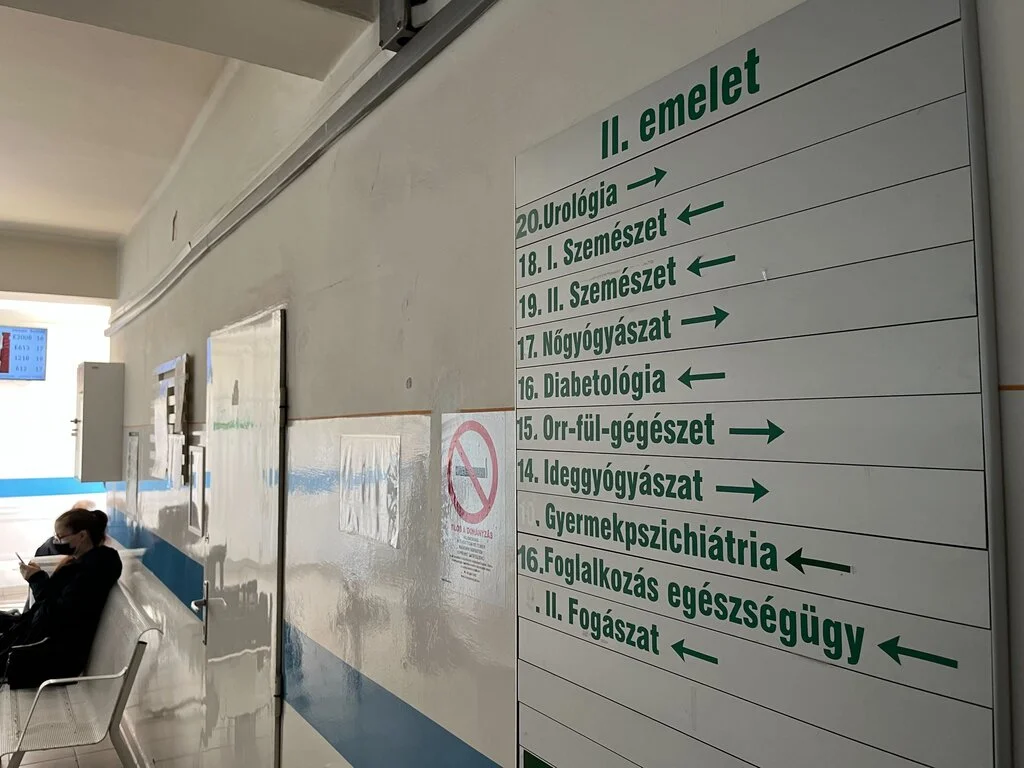Change language:
Drastic changes in healthcare in Budapest from October
The National Ambulance Service (OMSZ) is planning a significant reduction in the number of GP services in Budapest, cutting them by a third. Starting in October, the city will see only 13 adult and 3 pediatric emergency points in operation, a decrease from the current 23. This change aims to centralise emergency healthcare services in the capital.
The new adult healthcare points will be strategically distributed: six will be located next to emergency departments, five within specialised clinics, and two at OMSZ facilities, Népszava reports after the concept of the OMSZ was obtained by the newspaper. The pediatric outpatient clinics will be situated at Heim Pál Hospital, Szent János Hospital, and the Révész Street clinic in the XIII district.
To support this new structure, OMSZ plans to deploy five “secondary” two-person on-call emergency units. These units will help integrate Budapest into the national unified state on-call system, aiming to provide a more cohesive and efficient emergency response.
Currently, primary care in Budapest operates differently from other regions in Hungary. Residents can access district-run emergency services 24/7, with doctors available to make house calls if necessary. This system allows GPs to manage emergency cases without disrupting their regular practice hours.
However, under the new plan, the 24-hour on-call service will be discontinued. Instead, GPs will be assigned to specific on-call points in their districts from 4 PM to 10 PM on weekdays, and from 8 AM to 2 PM on weekends and public holidays. After 10 PM, care will be provided by university-qualified specialist nurses, paramedics, and ambulance officers. This change has raised concerns among professional organisations, including the Hungarian Medical Chamber and the Budapest municipality, regarding its potential impact on patient care and safety.
The revised on-call service will be coordinated by the National Ambulance Service, requiring patients to dial the emergency number (1830) outside of normal office hours. Dispatchers will then assess whether the patient needs telephone advice, an ambulance, or an in-person examination. One significant challenge of this new system is that many primary care doctors in Budapest have not participated in on-call care for 25-30 years, leaving them inexperienced in handling emergency situations, as Népszava reports.
Many questions arise about the new health system

Patient safety is also a concern, particularly regarding the availability of GPs from 4 PM to 8 PM, which overlaps with their regular working hours. This overlap means that if GPs are required to be on call during these hours, they may need to stop seeing patients after 4 PM, limiting the availability of regular appointments. Consequently, many patients might only be able to see their GPs during personal leave, further complicating access to primary care.
Gábor Havasi, Budapest’s health councillor, expressed concerns to Népszava about the lack of consultation from the government regarding the restructuring of the on-call system. Mayor Gergely Karácsony has written to State Secretary Péter Takács, seeking a meeting to discuss these changes. Havasi doubts whether the ambulance service has sufficient capacity to manage the new on-call duties and mentioned that the city plans to develop its own proposal for restructuring on-call services in Budapest.
The planned changes reflect a significant shift in how emergency healthcare will be delivered in Budapest. While the aim is to create a more integrated and efficient system, the transition poses challenges and uncertainties, particularly concerning the preparedness of GPs and the overall impact on patient care.
Read also:
- Hungarian minister announces end of public-private healthcare divide – Read here
- Devastating news: life expectancy at birth in Hungary low, Romania may soon precede Hungary








Cataclysmic Mess.
Cut costing at the expense of citizens Health ?
Doctors – general practitioners, working there surgeries say from 9am to 4pm or later in lot’s of cases, wonder what they will say, being on the CALL out Roaster ?
Shortage of General Practitioners ?
This could quite easily COST lives these RIDICULOUS changes.
Won’y be SURPRISED if there is not MAJOR “flack” – CRITICISM – RIGHTLY on the Orban – Fidesz Government from the Medical Practitioners and “others” who these changes WILL effect.